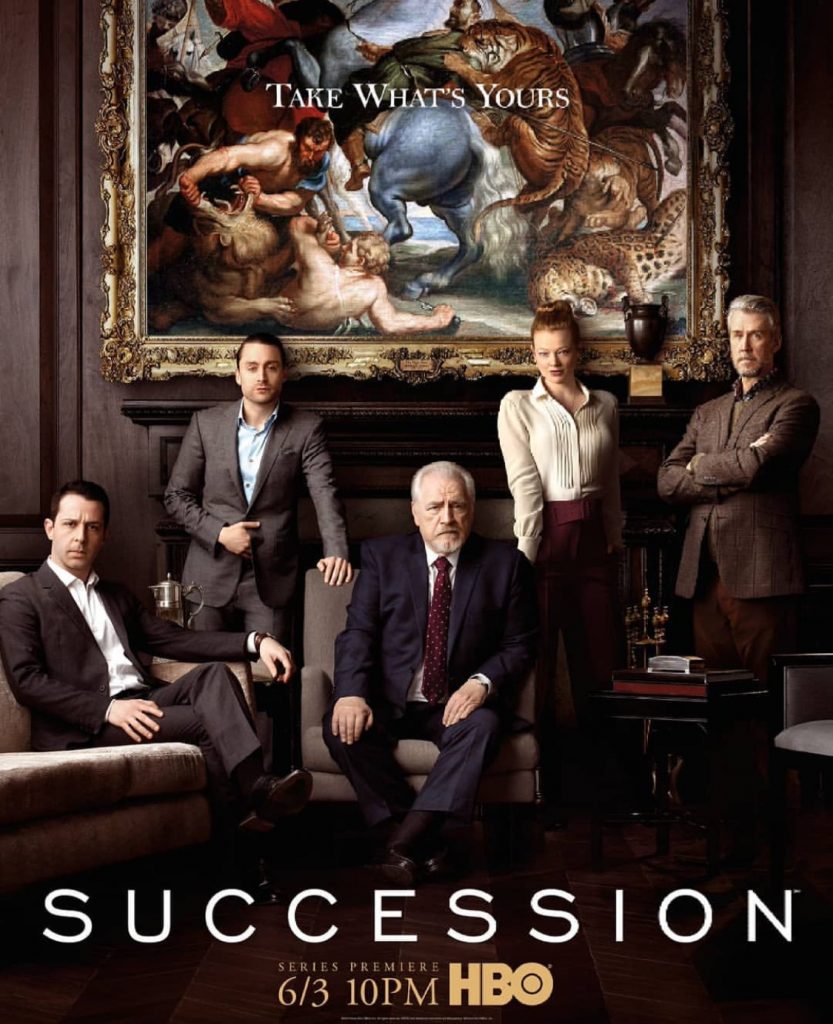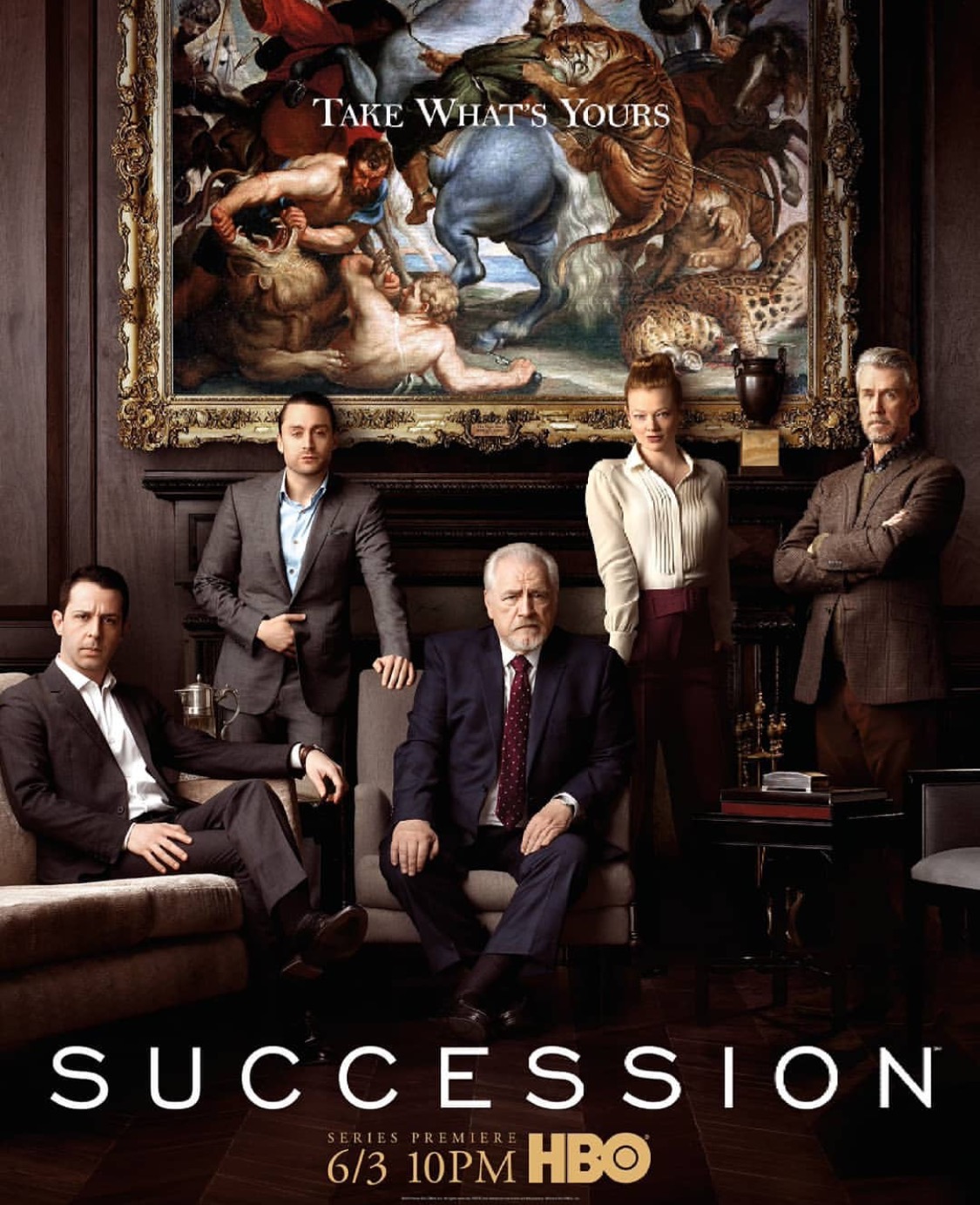
There won’t be any new episodes of “Game of Thrones” this summer, so HBO has turned its attention to a different kind of power game and a different kind of throne. “Succession,” which premiered at 10 p.m. Sunday, June 3, is an intoxicating mix of wicked comedy and “Lear”-like tragedy, served up in a bubbling cauldron of dirty deals, double deals, betrayals, shifting alliances, plotting and counter-plotting.
Unlike “Game of Thrones,” however, “Succession” is set in the present and in a kingdom known as New York. There are no dragons, swords, poisons or stealthily concealed daggers . . . at least, not the literal kind. Metaphorically, all of those dandy little items are there in the boardrooms, bedrooms and hospital rooms of this immediately intriguing HBO newcomer.
So, if the lack of actual swordplay and dragon fire isn’t a deal-breaker for you, there’s much fun to be had in the dark comedy and corporate-empire drama of “Succession.”
Brian Cox, who, significantly enough, won acclaim for his portrayal of “King Lear” with the Royal Shakespeare Company, stars as Logan Roy, the aging and ailing patriarch of an international news and entertainment corporation. Think Rupert Murdoch (you might as well, since the Murdoch family clearly is the primary model for the Roys).
Logan has decided to step down from his lofty perch as the supreme ruler at Waystar Royco, a family-controlled international media conglomerate. He is going to end his reign by turning over the reins to his second son, Kendall (Jeremy Strong), a recovering addict who seemingly lacks his father’s killer instincts.
The more Logan sees of Kendall as a leader, the less sure he is of this plan. All of the air is about to be squeezed out of the heir apparent’s dreams.
Kendall is hurt, stunned and angered by his father’s decision to stay in charge. But doubt fans the fires of greed and ambition, and Logan’s other three children soon join the game, jockeying for position in what’s suddenly an uncertain future.
The race is a wild one, with each of the entrants weighed down by some emotional handicaps. Yes, all of the Roys are carrying around overloaded bags of damage.
Each has major daddy issues. Each has an agenda.
Roman (Kieran Culkin), Kendall’s younger brother, is wisecracking loafer who wants power but doesn’t want to work for it. Their sister, Shiv (Sarah Snook), is the youngest and is pursuing a career in politics.
Like Shiv, the oldest Roy child, free-spirit Connor (Cleveland native Alan Ruck), claims to have no interest in the company. Do we believe them? Kendall sure doesn’t.
Other players include Shiv’s boyfriend, Tom (Matthew Macfadyen), a senior executive at the company; the chief operating officer, Frank (Peter Friedman), who is a mentor to Kendall; screw-up cousin Greg (Nicholas Braun), who has a way of turning failure into opportunity; and Logan’s third wife, Marcia (Hiam Abbass).
There’s nothing all that likable about the Roys. They are a vain, petty and avaricious lot. But they are incredibly fascinating, thanks to the riveting performances and the razor-sharp writing.
That “Succession” is richly funny drama should come as no surprise, since British comedy writer Jesse Armstrong (“Peep Show”) is the sly show’s co-creator. But what truly distinguishes this HBO rookie is its remarkable ability to glide effortlessly from outrageous humor to overwhelming pain.
When the damages surface on the faces of the Roy children, you feel for them, no matter how badly they might have treated people in the previous scene. You see the dysfunction that has twisted them into what they are.
You don’t so much care who ultimately wins or loses, you just, for a little while at least, care about them. You can laugh at them when they are being tripped up by jealousy and resentment, but you can’t laugh them away.
And just when you think this ensemble can’t get any better, in walks a James Cromwell or an Eric Bogosian. HBO made the first seven episodes available to critics, establishing “Succession” as a worthy summer successor to that other drama about an empire up for grabs.
This one, though, speaks more directly and savagely to many cultural and societal issues of today. Indeed, game on.
By Cleveland





